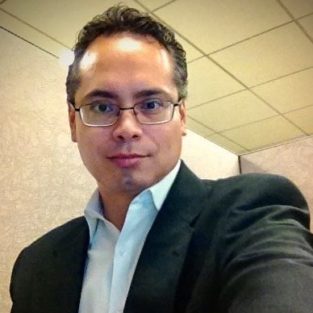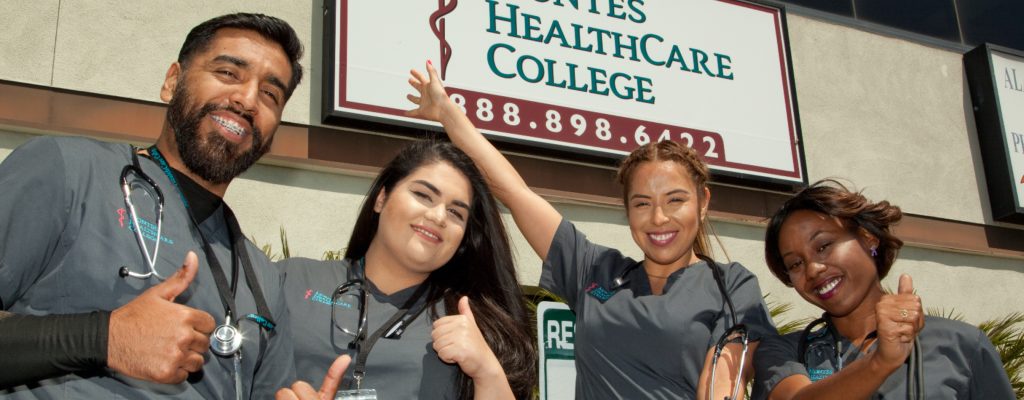
We recently sat down with MHCC’s own Ron Jurado to ask a few questions in order for you to get to know him a little better.
Q: What is your role at MHCC?
Ron: “I am the program director for Medical Coding & Billing. I oversee the curriculum and am responsible for teaching the course as well.
“I am a Certified Professional Medical Auditor with the American Academy of Professional Coders (AAPC). I’m currently working on Certification for the CPC Instructor program; in the coming months MHCC will be able to offer Certification Test Prep through the AAPC CPC Course Curriculum.”
Q: What are your favorite parts about your role?
Ron: “Education–there is no equivalent. There is nothing more enjoyable and stimulating than working with students and being a part of the learning process.”
Q: What drew you to MHCC? What do you enjoy the most about it?
Ron: “I first met Dr. Juan Montes in 2018 when I would take my grandmother in for visits at his family-owned and operated medical group. My grandmother, who is 105 years young, has been a patient of Dr. Montes for close to 35 years. During one of my conversations with Dr. J, I revealed that I was a Certified Professional Coder and the rest is history. I thoroughly enjoy everything that MHCC and Montes Medical represents: small family-owned and managed, but large on an integrity-based medical and educational approach. As the saying goes, when you possess integrity, you broadcast trustworthiness.”
Q: What do you enjoy most about teaching?
Ron: “Interaction with students that are interested in learning and growing, in and out of the classroom. As a vocational educator, sharing knowledge and experience is critical to the learning process. For example, medical coding is the language of medical billing–consisting of numeric and alphanumeric codes to indicate to insurance companies what services/procedures the patient has received. In the medical reimbursement industry, coding comes first followed by billing and collection. This is the reason our program is Medical Coding and Billing and not the other way around. Code first; bill second.
Given the importance of medical coding and billing to any medical practice, there is nothing more rewarding than sharing knowledge and experience with a candidate interested in the field, and preparing them for a career opportunity.”
Q: Do you have any advice for someone considering a career in medical coding & billing?
Ron: “My advice is to master medical terminology through word building–think root words and prefix/suffix usage, and understanding anatomy and physiology as it relates to medical coding. I can teach you the rest. Organizational skills will also help you become a medical practice accountant. In the industry, you will work with doctors, nurses, PAs, and other assistants, and it is important to understand the lingo or medical jargon used to communicate. Medical terminology alongside medical abbreviations will make life easier working in any medical office, and also make you a better coder!”
Q: What’s changed the most about medical coding & billing within the past 5 years?
Ron: “Machine learning has changed the dynamics of medical coding and billing. Artificial Intelligence (AI) is going to affect all of us moving forward, and this career is no different. In the industry, it is known as CAC (computer-assisted coding) and has been around for years. But CAC tends to overcode, which is bad and wasteful because it can lead to fraud and abuse. Larger facilities (hospitals) use CAC but they still have coders that are certified as auditors reviewing everything.”
“I often have students ask when Machine Learning (Artificial Intelligence) will replace us and, to that, I often say that we can’t let that prevent the learning of a new skill to pursue a career you’ll love. AI and CAC will have their roles but auditors and coders are still needed to ensure that the industry doesn’t get overrun with fraud and abuse. So it’s important to learn how to work with AI, especially since we will be working together with it in every aspect of our lives moving forward. In other words, embrace the robot working in the next cubicle; it might just be your next best friend?!”
Q: What is one of the most important lessons that you’ve learned from your students?
Ron: “Empathy. With all the noise and misinformation, I see my students going through so much–most of which I didn’t have to deal with when I was growing up. That has really changed my teaching methodology. As an educator, you want to be able to adapt so that students can learn, follow, and move on to the next subject. By being empathetic, I can understand what my students’ needs are so that I can educate them.”
Q: What is a fun fact that your students might not know about you?
Ron: “I’m an open book with my students. Transparency and honesty are the best policies (honesty is the only policy, according to my grandfather). So that is the environment I look to establish in the classroom. With that said, having a sense of humor will get you to the front of the class; laughter, learning, and fun all day long.”
“But if you’re late to class, bring coffee–no apples for me. A quarter pounder with cheese doesn’t hurt either.”
“I look forward to seeing you in class soon. In the meantime, please take care and be well!”

